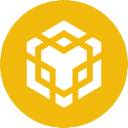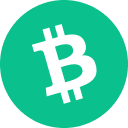
Navigating the Best Cryptocurrency Exchanges in 2026: A Global Perspective

In the ever-evolving landscape of cryptocurrency exchanges, 2025 marks a pivotal year for traders and investors worldwide. As digital assets continue to gain traction, choosing the right platform becomes a critical decision that can significantly impact your trading success. This comprehensive guide delves into the top cryptocurrency exchanges of 2026, offering a global perspective on the platforms that are setting new standards in the industry.
With a myriad of options available, from centralized exchanges like Coinbase and Bitget to decentralized and hybrid platforms, understanding the unique features and security measures of each is essential. Our analysis highlights the strengths of leading exchanges such as PrimeXBT, BTCC, and Uphold, focusing on their usability, security protocols, and the range of cryptocurrencies they support. Whether you're a seasoned trader or a newcomer to the crypto market, this guide provides the insights needed to navigate the complexities of trading fees, liquidity, and security features.
Disclaimer: ⚠️ Crypto is a high-risk asset class. Editorial Policy. Affiliate Disclosure. Trading cryptocurrencies, including derivatives and perpetual futures, may result in the loss of all your capital. This content is provided for informational purposes only and does not constitute investment advice. Bitcoin.com may earn commissions through affiliate links at no additional cost to you. All recommendations are independently researched and reviewed in line with our Editorial Policy and Affiliate Disclosure.
| Rank | Casino | Accepted Cryptocurrencies | Welcome Bonus | Action |
|---|---|---|---|---|
| #1 |  Coinbase - Best Crypto Exchange for Beginners Coinbase - Best Crypto Exchange for Beginners | Sign up and get up to $200 in crypto (use code get50 to get $50 BTC) | Review Trade | |
| #2 |  Bitget - Best Crypto Exchange for Altcoins Bitget - Best Crypto Exchange for Altcoins | Sign up now to claim a welcome pack of 6,200 USDT! | Review Trade | |
| #3 |  PrimeXBT - All-in-One Crypto Exchange PrimeXBT - All-in-One Crypto Exchange | Boost your deposit by 20%, up to $7,000! (Tradable Bonus) | Review Trade | |
| #4 |  BTCC - Best Crypto Exchange for Low Fees BTCC - Best Crypto Exchange for Low Fees | Sign up and get up to 10,055 USDT in welcome rewards plus enjoy a 10% deposit bonus! Use your rewards to cover trading fees, giving you a powerful boost as you start trading! | Review Trade | |
| #5 |  Bydfi - A one-stop social trading platform for individual investor Bydfi - A one-stop social trading platform for individual investor | Sign up now to get to claim a welcome pack of 8,100 USDT Crypto assets support 700+ | Review Trade | |
| #6 |  ChangeNOW Review ChangeNOW Review | Swap crypto instantly with no registration required - Over 1,500 assets supported! | Review Trade | |
| #7 |  CCE Cash CCE Cash |
| Instant, low-fee cryptocurrency exchange - no KYC required | Review Trade |
| #8 |  Kraken Review Kraken Review | Trade spot, stake digital assets, earn up to 8% APY via DeFi Earn, and access regulated derivatives - Kraken brings advanced crypto tools and liquidity into one platform. | Review Trade | |
| #9 |  Bitpanda Bitpanda | Trade crypto with up to 10x leverage on Bitpanda Margin - Europe's first MiCAR-licensed platform. Real assets, zero buy fees, 100+ cryptos. Desktop & mobile ready. | Review Trade | |
| #10 |  Gemini Review Gemini Review | Earn $75 in crypto for you and your referee when they trade $100+, plus enjoy up to 12 months of referral rewards | Review Trade | |
| #11 |  Binance Review Binance Review | Up to $600 in Welcome Bonuses! | Review Trade | |
| #12 |  Rain Review Rain Review | Enjoy a 10% rebate for the first 30 days of trading with Rain | Review Trade | |
| #13 |  Libertex Libertex | Trade crypto and other types of CFDs with a regulated broker - 80% of retail investor accounts lose money | Review Trade | |
| #14 |  Bitcoin.com Bitcoin.com | Be the first to trade spot, derivatives, and leverage on Bitcoin. Join the waiting list. | Review Trade |
Breaking Down the Top 5 Cryptocurrency Exchanges for 2026
Coinbase - Best Crypto Exchange for Beginners
At the top 1 spot on our list of best crypto exchanges is Coinbase, a US-based crypto exchange that has grown since 2012 to become one of the most recognized platforms in the industry. With an intuitive interface and a strong focus on security, Coinbase offers users a simple and reliable way to buy, sell, and manage digital assets.
One of the standout features of Coinbase is its ease of use. The platform is designed to make crypto transactions as straightforward as possible, offering seamless onboarding for new users. In addition to its web platform, Coinbase has a highly rated mobile app that offers all the functionalities needed to manage digital assets on the go. From buying and selling Bitcoin to exploring hundreds of altcoins, Coinbase provides users with access to a broad spectrum of the crypto market.
Coinbase also excels among the best Bitcoin exchanges in its commitment to security. The platform uses advanced security features, including two-factor authentication (2FA) and cold storage for the majority of its assets, ensuring that user funds are well-protected. Additionally, Coinbase is one of the few exchanges that is publicly traded, further enhancing its credibility and transparency. Users can feel confident knowing that Coinbase operates under stringent regulatory guidelines, adding an extra layer of trust.
The educational resources on Coinbase are another major advantage, especially for those new to cryptocurrency. Coinbase offers a variety of learning tools that help users understand the fundamentals of cryptocurrency and blockchain technology. The platform also provides incentives for users to learn, rewarding them with crypto for completing educational modules. This feature makes Coinbase not only a trading platform but also a great resource for personal growth in the crypto space.
Overall, Coinbase has built a reputation as a secure, user-friendly, and reliable platform for cryptocurrency trading and management. With a wide range of services, including access to an expansive list of cryptocurrencies, a robust mobile app, and extensive educational resources, Coinbase is well-suited for anyone looking to dive into the world of digital assets. Its strong focus on security and compliance further cements its status as one of the top choices for crypto traders globally.
Pros
- ✅ Easy-to-use platform for beginners and experienced traders
- ✅ Buy, sell, and securely store hundreds of cryptocurrencies
- ✅ Strong security with two-factor authentication and cold storage
- ✅ Educational resources that reward users while learning about crypto
Cons
- ❌ Higher fees than some competitors
- ❌ Limited customer support
- ❌ Fewer advanced trading tools
- ❌ Not all cryptocurrencies available
Minimum deposit
$0.00
Maker fees
0.00% to 0.40%
Taker fees
0.05% to 0.60%
Supported cryptocurrencies
350+
Year launched
2012
Bitget - Best Crypto Exchange for Altcoins
Bitget is a cryptocurrency exchange that provides users with a secure and efficient trading experience. As a centralized exchange, Bitget offers high liquidity, enabling fast trades across a wide range of digital assets. It supports many cryptocurrencies, from popular coins like Bitcoin and Ethereum to a variety of altcoins, giving users plenty of ways to diversify their portfolios.
What we like most about Bitget is how easy it is to navigate. Managing accounts, executing trades, and exploring advanced features feels straightforward for both beginners and experienced traders.
In addition to trading, Bitget offers various earning opportunities. The platform supports staking, allowing users to earn rewards by locking up their tokens. Bitget also features copy trading, enabling users to mirror the trades of successful investors, and futures trading for those looking to leverage their investments. Security is a top priority for Bitget, with robust measures like multi-signature wallets and advanced encryption safeguarding user assets. Additionally, 24/7 customer support is available to assist with any issues, ensuring a reliable and secure trading environment.
For a deeper look at what the platform offers, explore our complete Bitget review.
Pros
- ✅ Large cryptocurrency range
- ✅ User-friendly interface
- ✅ Staking rewards
- ✅ Copy trading
Cons
- ❌ Limited fiat payment options
- ❌ Some advanced features may be confusing for beginners
- ❌ Customer support can be slow at peak times
- ❌ Not available in all countries
Minimum deposit
$10–$50
Maker fees
0.10%
Taker fees
0.15%
Supported cryptocurrencies
600+
Year launched
2018
PrimeXBT - All-in-One Crypto Exchange
PrimeXBT is a leading cryptocurrency exchange that offers a versatile trading experience for both beginners and seasoned traders. With high liquidity, it allows fast and efficient trades across a wide range of digital assets.
One thing that really catches our attention is the platform's all-in-one approach. You can trade cryptocurrencies like Bitcoin and Ethereum, as well as traditional markets such as forex, commodities, and indices, all in one place. Its advanced tools and leverage options give traders the edge to make strategic moves, while the interface keeps everything clear and straightforward.
Security is a key focus, with multi-signature wallets, two-factor authentication, and encrypted communications keeping funds safe. On top of that, 24/7 customer support ensures help is always available.
We also like how PrimeXBT makes learning and earning go hand in hand. With copy trading and a referral program, users can gain insights from successful traders and put strategies into practice. Competitive fees make it even more appealing for anyone looking to trade efficiently and confidently.
Check out our in-depth PrimeXBT review to explore all its features and trading options.
Pros
- ✅ Trade crypto and traditional markets
- ✅ Advanced tools and leverage
- ✅ Support anytime, 24/7
- ✅ Mirror top traders
Cons
- ❌ No direct crypto ownership
- ❌ Limited crypto selection
- ❌ High fiat withdrawal fees
- ❌ Restricted in some countries
Minimum deposit
0.001 BTC
Maker fees
0.01% to 0.05%
Taker fees
0.02% to 0.05%
Supported cryptocurrencies
50+
Year launched
2018
BTCC - Best Crypto Exchange for Low Fees
When evaluating the best cryptocurrency exchanges, longevity and reliability stand as crucial factors for traders worldwide. Platforms that have operated since the early 2010s demonstrate resilience in an evolving digital asset landscape, offering valuable insights into what makes exchanges trustworthy and functional.
The best cryptocurrency exchanges typically provide comprehensive trading environments that cater to both newcomers and seasoned investors. Essential features include intuitive charting tools, diverse order execution options such as market, limit, stop, and OCO orders, and seamless conversion between traditional currencies and digital assets. Mobile accessibility has become equally important, with robust applications for Android and iOS devices enabling traders to manage positions anywhere.
Security infrastructure remains paramount in exchange selection. Leading platforms implement cold storage solutions to safeguard user holdings, protecting assets from potential threats. While regulatory status varies across jurisdictions, established exchanges often compensate through enhanced security protocols and transparent operational practices.
Successful exchanges distinguish themselves through competitive fee structures and flexible funding methods, including traditional wire transfers alongside cryptocurrency deposits. A diverse selection of tradable assets beyond Bitcoin and Ethereum attracts users seeking portfolio variety, while straightforward interfaces ensure accessibility regardless of technical expertise.
The cryptocurrency exchange landscape continues maturing, with veteran platforms setting standards for functionality, security, and user experience that newer entrants strive to match. Understanding these benchmarks helps traders identify platforms aligned with their specific trading objectives and risk tolerance.
Pros
- ✅ Trusted Bitcoin exchange since 2011
- ✅ Secure cold storage for user funds
- ✅ Low fees for Bitcoin mining pools
- ✅ Easy-to-use web and mobile platforms
Cons
- ❌ Limited customer support channels
- ❌ Fewer advanced trading tools
- ❌ Restricted in some countries
- ❌ Focused mainly on Bitcoin and major altcoins
Maker fees
0.025% to 0.2%
Taker fees
0.045% to 0.3%
Supported cryptocurrencies
350+
Year launched
2011
Welcome bonus
Sign up and get up to 10,055 USDT in welcome rewards plus enjoy a 10% deposit bonus! Use your rewards to cover trading fees, giving you a powerful boost as you start trading!
Bydfi - A one-stop social trading platform for individual investor
Cryptocurrency exchanges serve as digital marketplaces where traders can buy, sell, and exchange various digital assets. These platforms have evolved significantly since Bitcoin's inception, transforming from simple trading interfaces into comprehensive financial ecosystems offering diverse services and features.
Modern trading platforms provide multiple functionalities beyond basic transactions. Users can access spot trading for immediate asset purchases, engage in futures and perpetual contracts for leveraged positions, and utilize automated trading strategies like grid bots and dollar-cost averaging tools. The best cryptocurrency exchanges distinguish themselves through robust security measures, competitive fee structures, and intuitive user interfaces that accommodate both newcomers and experienced traders.
Social trading has emerged as an innovative feature, enabling less experienced users to follow and replicate the strategies of successful traders. This collaborative approach creates communities where knowledge sharing and strategy discussion flourish, bridging the gap between professional and retail investors.
Global accessibility remains a priority for leading platforms, with many serving users across hundreds of countries and supporting multiple languages and payment methods. The industry continues adapting to regulatory changes and market demands, with platforms regularly updating their offerings and rebranding to better align with user needs.
When selecting among the best cryptocurrency exchanges, traders should evaluate factors including available trading pairs, security protocols, customer support quality, withdrawal limits, and the range of advanced features that match their investment goals and experience level.
Perks
- AI trading agents that generate real-time, actionable trading signals based on comprehensive data analysis.
- Proprietary crypto trading terminal with leverage ranging from 1x to 200x and support for more than 100 trading pairs.
- No KYC required for most users, enabling fast and private account creation.
- Low trading fees across most assets.
- Unique X-ray trade analysis tool to optimize trading performance.
- The upcoming features include meme token trading, AI Copilot, spot trading, and AI Market Overview.
- The platform operates globally, including the CIS, India, Latin America, Brazil, Malaysia, and Europe.
- Launched in 2023
Forbes Recommended
BYDFi has been recognized by Forbes as one of the top ten best cryptocurrency exchanges in 2023. This is a significant achievement for the crypto exchange, which was launched in 2020 and has rapidly become a popular destination for traders.
more than 500+ cryptocurrencies available
We currently offer more than 400 different cryptocurrencies for trading, including popular ones such as Bitcoin (BTC), Ethereum (ETH), Ripple (XRP), Dogecoin (DOGE), Cardano (ADA), and Shiba Inu (SHIB).
Welcome bonus
Sign up now to get to claim a welcome pack of 8,100 USDT Crypto assets support 700+
What is a Cryptocurrency Exchange?
A crypto exchange is a platform where you can buy cryptocurrency using cash or another digital asset.
Our guide focuses on centralized exchanges, which are operated by companies that facilitate buying, selling, and trading cryptocurrencies. Centralized exchanges are ideal for beginners or those converting fiat currency to crypto.
Alternatively, decentralized exchanges are blockchain-based programs that allow users to swap cryptocurrencies. They often have lower fees but require more technical knowledge and are limited if you don't already own cryptocurrency.
How is investing in crypto different from investing in stocks?
The following differences make crypto investing potentially more lucrative but also riskier compared to traditional stock investments:
Regulation: cryptocurrencies are less regulated compared to stocks, leading to higher risk and volatility.
Ownership: crypto investments involve owning digital assets, whereas stock investments mean owning shares of a company.
Market Hours: crypto markets operate 24/7, while stock markets have specific trading hours.
Volatility: cryptocurrencies tend to be more volatile than stocks, with prices frequently experiencing significant swings.
Underlying Value: Stocks represent ownership in a company with tangible assets and earnings, while cryptocurrencies often rely on speculative value and utility within their respective blockchain ecosystems.
Types of Cryptocurrency Exchanges
Crypto exchanges aren't all the same—they each serve different trading goals and styles. From centralized platforms to peer-to-peer networks, knowing the types of exchanges available can make all the difference in finding the one that fits your approach. We've looked at the options carefully, and we want you to understand each type so you can choose the platform that works best for you.
Centralized Exchanges (CEX)
Centralized exchanges are the most common type of crypto exchange, where a central authority manages the platform. They offer high liquidity, a wide range of supported cryptocurrencies, and user-friendly interfaces. However, users must trust the exchange with their funds, which can be a security risk.
Decentralized Exchanges (DEX)
Decentralized exchanges operate without a central authority, allowing users to trade directly with one another. They enhance privacy and security, as users maintain control over their funds. However, DEXs may have lower liquidity and can be more complex for beginners to use.
Peer-to-Peer (P2P) Exchanges
Peer-to-peer exchanges facilitate direct trading between users, often with more flexible payment options. These platforms match buyers and sellers, allowing them to negotiate terms. P2P exchanges offer increased privacy and control but require users to trust individual trade partners.
Brokerage Platforms
Brokerage platforms act as intermediaries, buying and selling cryptocurrencies at set prices. They are ideal for beginners due to their simplicity and ease of use. However, brokerage platforms often charge higher fees compared to other types of exchanges.
Hybrid Exchanges
Hybrid exchanges combine the features of both centralized and decentralized platforms. They offer the high liquidity and user-friendliness of centralized exchanges while incorporating the security and privacy benefits of decentralized exchanges. This type aims to provide the best of both worlds, making it an attractive option for many traders.
Futures Exchanges
Futures exchanges allow users to trade cryptocurrency futures contracts, where they agree to buy or sell an asset at a predetermined price at a future date. These platforms are popular among traders looking to hedge risks or speculate on market movements. Futures exchanges can offer high leverage, but they also carry significant risk.
Options Exchanges
Options exchanges offer trading in cryptocurrency options contracts, giving traders the right, but not the obligation, to buy or sell an asset at a specific price before a certain date. These platforms provide advanced trading strategies for experienced traders seeking to manage risk or speculate. However, options trading can be complex and risky for beginners.
Margin Trading Platforms
Margin trading platforms allow users to trade with borrowed funds, amplifying their potential profits or losses. These exchanges are suited for traders who want to leverage their positions and increase their buying power. While margin trading can enhance returns, it also significantly increases the risk of substantial losses.
Beyond the main types of crypto exchanges, there's a whole ecosystem of specialized platforms crafted for unique trading goals. From lending platforms like Aave that let your assets earn while you hold, to automated and algorithmic trading systems that take the guesswork out of strategy, and privacy-focused anonymous exchanges for those who value discretion. You'll also find copy trading exchange solutions, perpetual futures markets, staking reward platforms, token swap services, and recurring buy or DCA tools—each offering a distinct way to amplify your trading potential and tailor your approach to the crypto market.
How to Choose a Crypto Exchange
Choosing the right crypto exchange can feel overwhelming, but it doesn't have to be. Start by evaluating what you need from a platform. Are you looking for the best Bitcoin trading experience or a platform that supports a wide range of cryptocurrencies? Taking into account that the current list of crypto exchanges is extensive, our in-house team recommends focusing on platforms that combine strong security, intuitive interfaces, and reliable customer support. A careful balance of these features will help you select the best crypto trading platform for your needs.
Trading Fees and Costs
Trading fees can significantly impact your overall profitability in the crypto market. It's essential to compare fees among the best crypto exchanges to find one that offers competitive rates. Some platforms may offer lower fees but compensate with higher withdrawal or deposit costs. Evaluating the fee structures of the top crypto exchanges will help you choose the best crypto trading platform that aligns with your budget and trading strategy.
Liquidity of Crypto Assets
Liquidity is crucial for executing trades swiftly and at the desired price. The best crypto exchange should have high trading volumes and a significant number of active users. This ensures that you can buy or sell assets without significant price fluctuations. Top crypto exchanges typically boast high liquidity, making them the best bitcoin trading platforms for both novice and experienced traders. Adequate liquidity guarantees smooth and timely transactions.
Available Cryptocurrencies
When choosing a crypto exchange, consider the variety of cryptocurrencies available. The best crypto exchange should support a wide range of assets, allowing you to diversify your portfolio. Whether you're interested in trading Bitcoin or exploring altcoins, top crypto exchanges typically offer extensive lists of supported assets. This variety ensures you have the flexibility to invest in the best-performing cryptocurrencies at any given time.
Payment Methods
The ease of depositing and withdrawing funds is a critical factor in choosing the best crypto trading platform. Look for top crypto exchanges that offer multiple payment methods, such as bank transfers, credit cards, and even PayPal. The more payment options available, the more convenient it will be for you to manage your funds. A versatile payment system is a hallmark of the best bitcoin trading platforms, ensuring seamless transactions.
Security Features to Look For
Security should be a top priority when selecting a crypto exchange. The best crypto exchanges employ advanced security measures, including two-factor authentication (2FA), cold storage, and encryption protocols. These features protect your assets from potential threats and give you peace of mind. A secure platform is undoubtedly a crucial aspect of the best bitcoin trading platforms, safeguarding your investments against cyber attacks.
Accessibility and Functionality
Accessibility is another important factor to consider. The best crypto trading platform should be easy to use, regardless of your location or device. Top crypto exchanges offer intuitive mobile apps and responsive websites, ensuring you can trade on the go. Additionally, check if the platform supports your preferred language and complies with local regulations. Accessibility ensures that you can manage your investments efficiently and conveniently.
Customer Support Availability
Reliable customer support is a vital feature of any top crypto exchange. Issues can arise at any time, and having access to responsive support can make a significant difference. Look for the best crypto trading platforms that offer 24/7 customer service through various channels like live chat, email, or phone. Effective support ensures that your problems are resolved quickly, allowing you to focus on trading rather than troubleshooting.
User Interface and Experience
A user-friendly interface can greatly enhance your trading experience. The best crypto exchanges offer intuitive and easy-to-navigate platforms, catering to both beginners and advanced users. A well-designed interface allows you to execute trades, monitor your portfolio, and access market data effortlessly. The best bitcoin trading platforms prioritize user experience, making it simple for anyone to start trading without a steep learning curve.
Reputation and Regulatory Compliance
The reputation of a crypto exchange is a strong indicator of its reliability and trustworthiness. Research reviews and testimonials to gauge the experiences of other users. Top-rated crypto exchanges are known for their transparency, security, and quality of service. A good reputation often reflects the platform's commitment to providing a safe and efficient trading environment. Choosing a reputable exchange is crucial for ensuring the security and success of your crypto investments.
Crypto Exchange Fees
We know that fees can make a big difference in your trading results, so it's important to understand what you'll be paying when buying, selling, or moving crypto. There are two main types of fees to consider:
Trading fees
Trading fees can be a flat percentage of the crypto amount or vary for makers and takers, with makers typically paying less. Makers add liquidity by placing orders not immediately filled, while takers remove liquidity by fulfilling existing orders.
While choosing an exchange, focus on overall fees and potential discounts for trading volume or holding the exchange's token, rather than maker vs. taker fees.
Some crypto exchanges advertise zero fees but charge a spread instead, which can be more costly than percentage fees.
Withdrawal fees
Many Bitcoin exchanges charge fees to withdraw coins, which can be problematic if you want to transfer your crypto to a secure third-party wallet or another exchange. These fees vary by cryptocurrency.
If you plan to move your crypto off the exchange, opt for a platform offering fee-free withdrawals up to a certain amount.
How to Sign Up for a Cryptocurrency Exchange Account
If you're ready to start trading crypto, getting set up on a Bitcoin exchange is simpler than it seems. Here's what you can expect when opening an account at the most popular crypto exchanges:
-
Our experts have curated a list of the best exchanges for crypto to make sure you start with a reliable and secure exchange.
-
Provide your email address and create a password. Confirm your email ownership via a confirmation link sent to you.
-
Enter your full name, address, and phone number. Upload a government-issued ID, like a driver's license or passport.
-
Some exchanges require a selfie with your ID to verify your identity.
-
Once verified, deposit funds using available methods to start trading cryptocurrencies.
See the Best Crypto Exchanges by Coin
FAQ: Crypto and Bitcoin Exchange Platforms
What are the largest crypto exchanges?
The largest crypto exchanges by trading volume typically include Binance, and Coinbase. Binance leads the pack with its extensive range of cryptocurrencies, advanced trading features, and high liquidity. Coinbase is popular for its user-friendly interface and regulatory compliance. These exchanges are widely trusted and used globally.
Which crypto exchange is the safest?
Most trusted crypto exchanges include Gemini and Coinbase, which also prioritize user protection with robust security protocols and regulatory compliance. Users should still practice good security hygiene, such as using strong passwords and enabling 2FA.
Which crypto exchange has never been hacked?
Gemini is a notable crypto exchange that has never been hacked. Founded by the Winklevoss twins, Gemini places a strong emphasis on security and regulatory compliance. It uses advanced security measures such as cold storage, 2FA, and regular audits to protect user funds and data. This strong security track record makes Gemini a trusted platform for many traders.
Is it safe to keep crypto in an exchange?
Keeping crypto in an exchange can be safe if the platform has strong security measures, but it also comes with risks such as hacking. It is generally recommended to store large amounts of cryptocurrency in a personal wallet, especially a hardware wallet, for enhanced security. Only keep necessary amounts on exchanges for trading purposes to minimize risk.
Are there fake crypto exchanges?
Yes, there are fake crypto exchanges designed to scam users by stealing their funds or personal information. To avoid these, users should stick to well-known and reputable exchanges, check for regulatory compliance, read user reviews, and be wary of platforms offering deals that seem too good to be true. Always verify the exchange's credibility before creating an account or depositing funds.
How do crypto exchange platforms make money?
Exchanges for crypto make money primarily through trading fees, which can be charged per transaction, as a percentage of the trade, or through spreads. Some exchanges also earn revenue from listing fees paid by new cryptocurrencies, margin trading interest, and withdrawal fees. Additionally, advanced platforms may offer premium services and features for institutional traders at a higher cost.
What should I do if my crypto exchange is hacked?
If your crypto exchange is hacked, immediately change your passwords and enable two-factor authentication if you haven't already. Contact the exchange's customer support to report the issue and follow their instructions. Monitor your account for any unauthorized transactions and report them promptly. It's also wise to move your remaining funds to a more secure wallet and review your overall security practices to prevent future incidents.
Conclusion: The Best Crypto and Bitcoin Exchange Platforms Ranked by Bitcoin.com
Navigating the vast list of cryptocurrency exchanges can be challenging, but choosing the right platform makes all the difference. Leading names like Coinbase, Bitget, PrimeXBT, and BTCC stand out thanks to their security standards, broad asset support, and user-focused design. At Bitcoin.com, we keep our rankings updated so you can rely on fresh insights and select the exchange that best aligns with your trading goal!
Business & Partnership Enquires
For business or partnership queries, please contact us through affiliates@bitcoin.com. Our marketing experts will assist you as soon as possible.
About the Author

A seasoned innovator in the gaming and tech world, with nearly two decades of hands-on experience bridging the gap between emerging technologies and interactive entertainment. Since 2006, he has been at the forefront of industry evolution - from early online gaming ecosystems to today's cutting-edge game development tools, streaming platforms, and Web3 integrations.
ads@bitcoin.com



























